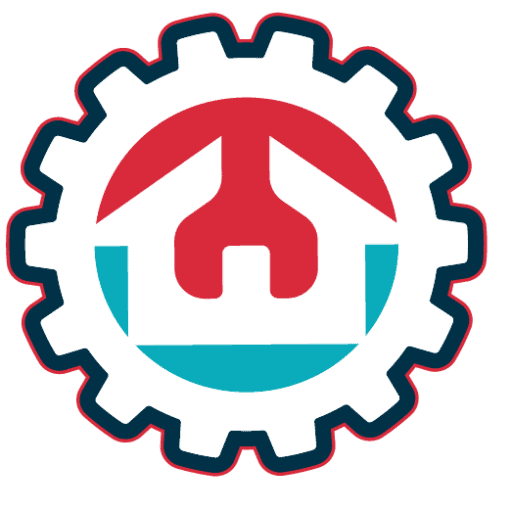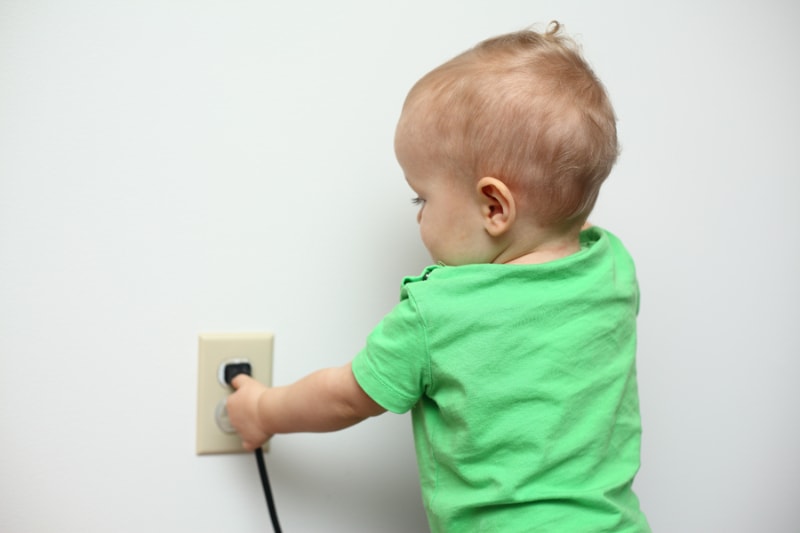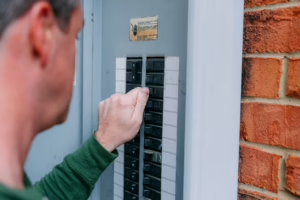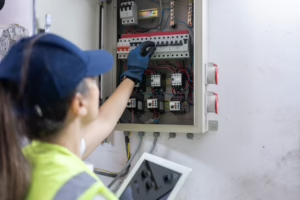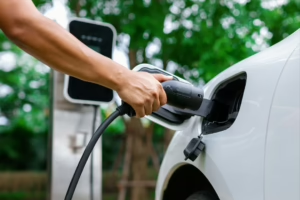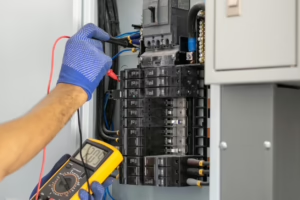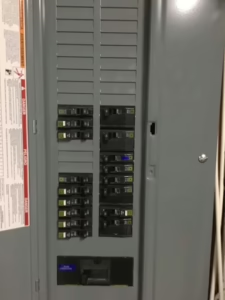Because electricity is such a normal part of everyday life, it’s easy to forget how deadly it can be.
In the United States, high-voltage electrical injuries cause 1,500 burn unit admissions and 400 deaths, according to the National Center for Biotechnology Information. Children are a high-risk group, accounting for about one in five shock injuries.
With a bit of diligence, you can protect yourself and your loved ones from the risks that electricity poses. Remember: always hire a reputable and qualified electrician to work on your home. Without the proper training and experience, working with electrical wiring is extremely risky.
HomeOps always puts the safety and well-being of our New York customers first. To keep yourself and your family protected from shocks and electrocution, here’s what you need to know:
Tips For Indoor Safety
- Don’t rely on extension cords in place of outlets. They should never extend through doors or under carpets. If an area in your home needs more access to power, have a new outlet installed.
- Large appliances like washing machines and refrigerators need a lot of electricity. Don’t plug more than one into an outlet. This can cause an energy overload.
- Always throw away and replace cords with holes or tears. Touching an exposed wire can shock you. Additionally, it poses a fire risk.
- Keep children away from electrical outlets. Your home should have tamper-resistant receptacles (TRRS), which block foreign objects from entering the outlet. Since 2008, TRRS switches are mandated by the National Electric Code. If your home hasn’t been updated, it’s time to make the switch.
- Circuit interrupters significantly reduce the risk of electrical fires. You should have GFCIs (ground-fault circuit interrupters) and AFCIs (arc-fault circuit interrupters) installed where needed.
Tips for Outdoor Safety
- Check the label! Make sure the tools and extension cords you work with outside are approved for outdoor use.
- Schedule professional tree trimming every few years to keep your lines safe. You should also have any dead trees cut down as soon as possible.
- Store power tools out of young children’s reach. Keep them in a dry place and never leave them outside when you’re not using them.
- Just like indoors, always dispose of fraying cords immediately.
- Clean any dust and debris off of your electric meter. You should also trim back any shrubbery that grows too close.
Key Safety Tips for Using Electricity
Inspect Cords, Plugs, and Outlets
Before using any electrical appliances, always check cords, plugs, and outlets for any signs of damage. Frayed or damaged cords can lead to fires or electrical shocks.
Use GFCI Outlets Near Water
Install Ground Fault Circuit Interrupter (GFCI) outlets in areas near water, such as kitchens, bathrooms, and outdoor spaces. These outlets help prevent electrical shocks by shutting off the power when they detect an imbalance in the electrical current.
Avoid Overloading Outlets
Never overload outlets with too many devices. Overloading can cause overheating and increase the risk of fire. Use surge protectors and avoid using extension cords as long-term solutions.
Educate Children About Electrical Safety
Teach your children about the dangers of electricity and how to use electrical devices safely. Ensure they understand not to stick objects into outlets and to stay away from electrical appliances when wet.
Unplug Appliances Before Cleaning
Always turn off and unplug appliances before cleaning or performing any maintenance. This reduces the risk of electrical shocks and accidents.
Protect Appliances During Power Outages
In the event of a power outage, unplug major appliances to protect them from potential power surges when the electricity comes back on.
Address Frequent Electrical Problems
If you experience frequent electrical problems, such as shocks, flickering lights, or frequent breaker trips, contact a professional electrician immediately. Ignoring these issues can lead to more significant problems and safety hazards.
What to Do When a Power Line Falls Near Your Home
If you encounter a fallen power line, it’s crucial to act swiftly and safely. Here are the steps you should follow:
- Stay Away: Maintain a safe distance from the fallen power line, as it may still be live and pose a serious risk of electrocution. Keep at least 30 feet away from the line and any objects it may be touching.
- Call for Help: Immediately contact your local utility company or emergency services to report the incident. Provide them with clear details about the location of the downed line.
- Alert Others: Inform family members and neighbours to stay clear of the area. If necessary, use warning signs or cones to mark off the dangerous zone, ensuring no one accidentally approaches the line.
- Do Not Attempt to Move the Line: Never try to touch or move the fallen power line. Even if you believe it to be inactive, it could still carry a deadly electrical charge.
- Monitor for Hazards: If there are hazards, such as sparks or fire, evacuate the area immediately and call emergency services. Your safety is the priority.
By following these steps, you can help ensure your safety and the safety of others in the event of a downed power line. Always heed the advice of professionals and wait for them to assess and resolve the situation.
Conclusion: Prioritize your safety!
Electrical safety is a vital aspect of every homeowner’s responsibility. By implementing the tips and guidelines outlined in this document, you can significantly reduce the risks associated with electrical hazards in your home. Always stay vigilant and proactive in addressing any electrical issues and ensure that all family members, especially children, are educated about safe practices. Remember, when in doubt or facing recurring problems, it’s best to consult with a licensed professional. At Home Ops Electric, we are committed to your safety and are always ready to assist with any of your electrical needs. Stay safe and secure!
